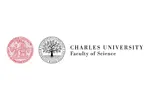

Faculty of Science, Czech Republic (the)
Visit course webpageSome unicellular microbes can differentiate into cysts to survive adverse conditions in nature or, in the case of pathogens, to infect the host. We study the cell biology of the eukaryotic pathogen Giardia intestinalis, which affects about five percent of the world's population. In addition to being a pathogen, it represents an excellent experimental model for evolutionary cell biology.
This PhD project awaits a candidate interested in the cell biology behind the transformation of an active eukaryotic cell into a dormant infectious stage. Projects will focus on characterizing cyst wall formation and the makeover of the cellular organelles using CRISPR/Cas9 genetics, live cell and electron microscopy of giardia. Bioinformatic exploration of eukaryotic genomes will be used to identify independent origins of cyst formation across the tree of life.
We are looking for a student with a background in cell biology and genetics, but most importantly a person with a creative mind who enjoys working on a unique cell biology model and is open to introducing new genetic/microscopic tools. We offer great research facilities and friendly working environment.
Five relevant publications of the research group:
Moty?kov
Learn more about Cell biology and evolution of microbial cyst, PhD - at Faculty of Science
Visit course webpageContact Faculty of Science to find course entry requirements.
This text facilitates quick navigation of the various types of scholarships but does not provide a full list of rules and policies regulating this field. The granting and payments of scholarships is governed primarily by the Scholarships and Bursaries Rules of Charles University (cuni.cz/UKEN-727.html), the Rules for Granting Scholarships at FSc, and the relevant measures issued by the Dean (natur.cuni.cz/fakulta/studium/bc-nmgr/predpisy-a-poplatky/stipendia; Czech only).
Students may obtain the following scholarships:
Certain scholarships are granted to students automatically (without student applications), whereas others are granted further to an application (electronic or paper, depending on the type of scholarship). Bursaries are neither taxed nor included in stated income. You can find answers to frequently asked questions regarding scholarships on the Faculty website (natur.cuni.cz/fakulta/studium/helpdesk/faq-stipendia; Czech only).
For more information check our dedicated website.
There are 136 other courses listed from Faculty of Science. A selection of these are displayed below:
A postdoctoral position to study thermal effects in landslides Postdoc
Faculty of Science
Find out moreActivation of STING signaling in tumors associated with human papillomaviruses PhD
Faculty of Science
Find out moreSee other universities in Prague
Find out more about studying in Czech Republic (the)